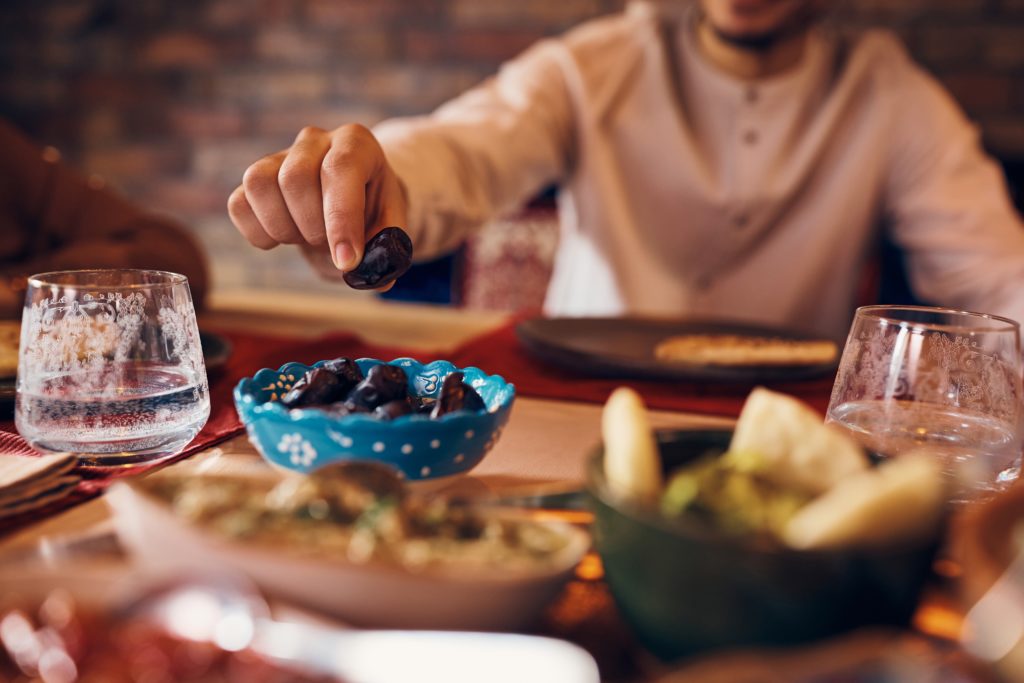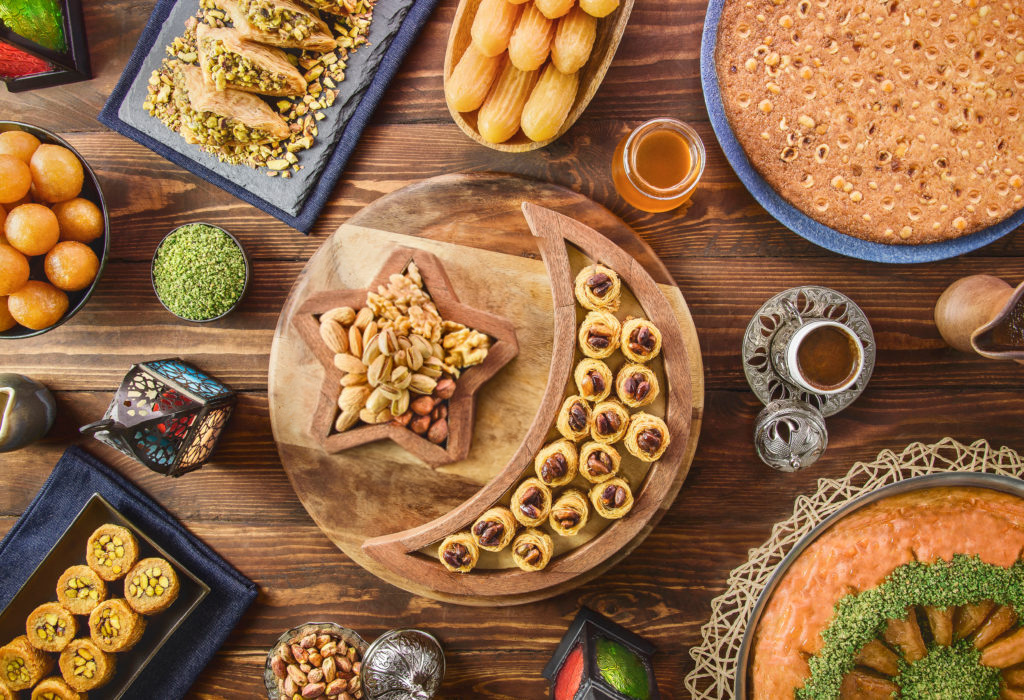Ramadan (also called Ramazan in Turkey) is the ninth month of the Muslim (lunar) calendar. It is a holy month for Muslims – according to this religion, it was during this month that the Archangel Gabriel appeared to the Prophet Muhammad, giving him several verses of the future holy book of Islam, the Quran.
Ramadan (Saum) is one of the five pillars of Islam. The other four are:
During the 30-day Ramadan, Muslims fast. During this time, they usually eat two meals a day – iftar after sunset and suhur before the call to morning prayer before sunrise. During the day, they must refrain from eating and drinking.
This holy month has no fixed date, because it works with the lunar calendar (which is 11 days shorter than the solar calendar). That is why Ramadan is a mobile period, and its beginning and end can be different around the world due to the geographical location of a given place. The key here is the moment when the crescent moon appears in the sky.

Ramadan is also a time that is filled with prayer, contemplation, reflection and good deeds for Muslims. Fasting serves to purify both the body and the soul. It is important to avoid bad deeds, conflicts, addictions and physical pleasures during this time. Muslims during Ramadan cannot:
It is a time of piety, regular prayers and charity, and studying the Quran.


No, certain groups of people are exempt from fasting during Ramadan:
People who are not chronically ill should make up for the 30-day fast within a year before the next Ramadan begins (often a way to make up for the fast is to donate funds to charity or provide a meal for someone in need – in line with the idea of doing good deeds during this time and identifying with the poorer).
The first meal of Ramadan, or suhur, should be eaten before sunrise and provide strength for the entire day of fasting.
What is eaten during the suhur meal:
When the sun sets, it is time to end the day’s fast – this is when Muslims eat their evening meal, iftar, which is usually very hearty. It begins with drinking water and eating dates. Later, fasting people will have soup, a second course, and dessert.
Iftar consists of nutritious dishes based on rice, potatoes, or grilled meat. In many places, dolma, or grape leaves stuffed with rice and vegetables, is popular. There is also room for stuffed vegetables, yogurt dips or mint. Desserts eaten during the iftar meal are sweet and caloric, including kunafa, baklava, mammoul date cookies or qatayef.
Both suhur and iftar have a festive character and are eaten with family and friends.


Ramadan ends the 3-day holiday of Eid al-Fitr, also known as Ramadan Bajram, which is a time for Muslims to rest and meet with loved ones and friends after a month of fasting, increased prayers, charity and strengthening their faith.
Time spent eating has cultural significance in the Middle East, because it brings people together – distant and close family members, friends and acquaintances, and even neighbors. That is why enjoying oriental dishes should be accompanied by… a meeting.
Traditional dishes from this region of the world are also enjoying growing popularity in Poland. Middle Eastern specialties are characterized by a unique taste, which can be obtained by following a few simple rules that you have just learned. Combine tradition with a pinch of exoticism and you will experience a true wealth of flavors and aromas!
PRODUCENT:
LEVANT FOODS Sp. z o.o.
ul. Pocztowa 15 B (wjazd od ulicy Kruczej)
62-080 Tarnowo Podgórne
info@levant.pl
tel. +48 61 88 66 600
fax +48 61 88 66 601